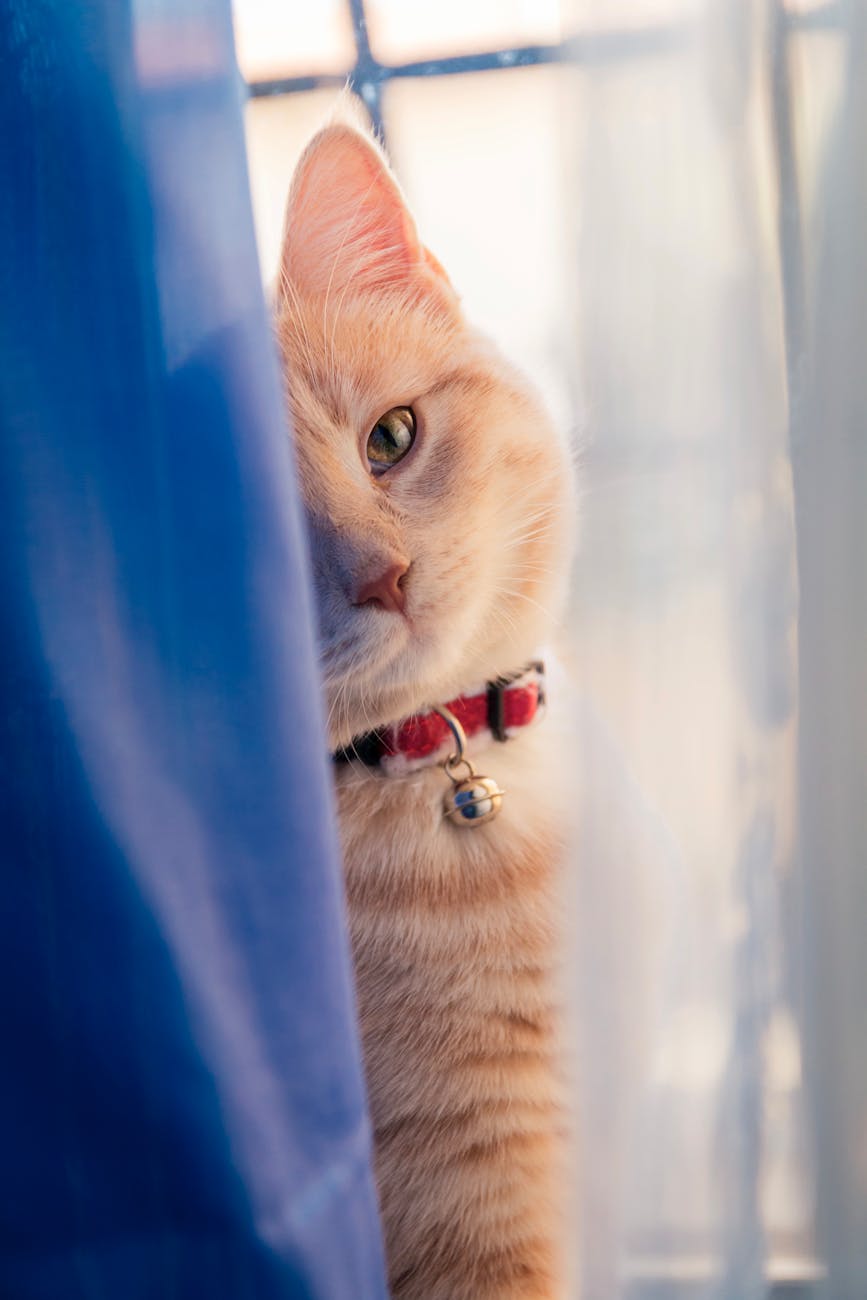Finding blood in cat urine can be alarming for any cat owner. This unusual symptom often indicates underlying health issues that require immediate attention. By understanding the common causes and symptoms associated with this condition, you can make informed decisions about your pet’s health. Moreover, knowing when to seek veterinary care and potential treatment options can help ensure your cat receives the necessary support. Additionally, adopting preventative measures and monitoring your cat’s health will contribute to their overall well-being and urinary health.
Common Causes of Blood in Cat Urine
Experiencing blood in cat urine can be alarming for any cat owner. Understanding the common causes is crucial for effective management. Here’s a breakdown of potential reasons:
- Urinary Tract Infections (UTIs): Infections can irritate the bladder and cause bleeding.
- Bladder Stones: These can scratch the bladder lining, resulting in blood in cat urine.
- Cysts or Tumors: Abnormal growths may form in the urinary tract, leading to bleeding.
- Trauma: Physical injuries can occur due to accidents or fights, causing blood to appear.
- Chronic Kidney Disease: This condition can disrupt normal urine production and lead to hematuria.
- Feline Idiopathic Cystitis (FIC): Stress-related inflammation can provoke bleeding without an underlying infection.
Recognizing the signs early can make a significant difference in prognosis. If you observe blood in cat urine, keep an eye on other symptoms such as:
- Frequent urination
- Straining or crying while urinating
- Lethargy
Prompt action can enhance your cat’s chances of recovery. Always consult your veterinarian for a thorough examination.

Symptoms to Look Out For
Identifying blood in cat urine can be challenging, but recognizing associated symptoms is crucial for timely intervention. Here are key signs to monitor:
- Frequent Urination: Cats may attempt to urinate more often due to irritation in the urinary tract.
- Straining: Watch for signs of discomfort while your cat is attempting to urinate, particularly if they seem to be having trouble.
- Loud Vocalizations: Your cat might express pain through meows or cries during urination.
- Changes in Urine Appearance: Look for pinkish or reddish hues in their urine, which indicates the presence of blood.
- Lethargy: A noticeable decrease in energy might suggest your cat is unwell.
- Loss of Appetite: If your cat is not eating as usual, this could signify distress or pain.
- Vomiting: Occasionally, this can accompany other symptoms if the cat is feeling particularly unwell.
Important Note: If you observe any of these symptoms alongside blood in cat urine, consult a veterinarian promptly. Early diagnosis leads to better outcomes!
When to Consult a Veterinarian
Recognizing blood in cat urine can be alarming, and it’s crucial to know when to seek veterinary care. If you notice any of the following symptoms, don’t hesitate to contact your veterinarian:
- Visible Blood: If you see blood in your cat’s urine, even in small amounts, this warrants immediate attention.
- Frequent Urination: Excessive attempts to urinate or visiting the litter box frequently can indicate a serious issue.
- Straining to Urinate: If your cat seems to struggle or whine while trying to urinate, it could signal a blockage or severe discomfort.
- Lethargy: A sudden drop in energy levels or unusual behavior may suggest underlying health concerns.
- Loss of Appetite: If your cat refuses to eat or shows a significant change in appetite, this could be a symptom of illness.
By understanding these warning signs and promptly consulting your veterinarian, you can ensure the best possible outcome for your cat. Remember, blood in cat urine can stem from various causes, and early intervention greatly enhances treatment efficacy.
Diagnostic Tests for Blood in Urine
When you notice blood in cat urine, it’s crucial to seek veterinary attention promptly. Vets utilize various diagnostic tests to determine the underlying cause. Here are the common methods used:
Urinalysis: This simple test examines the urine to check for signs of infection, crystals, or blood. Results can reveal the pH level and specific gravity, helping identify issues like urinary tract infections (UTIs).
Urine Culture: If a UTI is suspected, this test identifies the bacteria present, guiding appropriate antibiotic treatment.
Blood Tests: Peripheral blood work assesses overall health, kidney function, and detects possible underlying conditions affecting the urinary system.
Imaging: X-rays or ultrasounds help visualize structural issues such as bladder stones or tumors that may contribute to blood in cat urine.
| Test Type | Purpose | Approx. Time Required |
|---|---|---|
| Urinalysis | Detect abnormalities | 1-2 hours |
| Urine Culture | Identify infection | 24-48 hours |
| Blood Tests | Assess overall health | 1-2 hours |
| Imaging | Visualize internal structures | 30-60 minutes |
By utilizing these diagnostic tests, veterinarians can address the presence of blood in cat urine effectively and develop a suitable treatment plan for your cat’s health.

Treatment Options for Affected Cats
When you notice blood in cat urine, it’s crucial to seek veterinary attention immediately. Treatment options vary depending on the underlying cause. Here are some common approaches:
- Medications: Vets may prescribe antibiotics for infections or anti-inflammatory drugs for bladder irritation.
- Surgery: In cases of bladder stones or tumors, surgical intervention may be necessary to remove obstructions.
- Urinary Catheters: For severe blockage, a catheter may relieve pressure and allow urine to flow freely.
- Dietary Changes: Switching to special veterinary diets can help dissolve stones and prevent their formation.
Comparison of Treatment Options
| Treatment Type | Effectiveness | Best For |
|---|---|---|
| Medications | High | Infections |
| Surgery | Very High | Stones/Tumors |
| Urinary Catheters | Moderate | Blockages |
| Dietary Changes | High | Prevention |
Always consult your veterinarian for the most appropriate treatment plan for your cat’s specific situation. Remember, timely intervention can make a significant difference in managing blood in cat urine effectively.
Preventative Measures for Cat Owners
Preventing blood in cat urine involves a combination of good care practices and regular health monitoring. Here are some effective steps you can take to reduce the risk:
Hydration: Ensure your cat has constant access to fresh water. Proper hydration helps dilute urine and reduces the chances of urinary tract issues.
Litter Box Maintenance: Keep the litter box clean by scooping it daily. This helps you easily spot any changes in your cat’s urine, such as the presence of blood.
Balanced Diet: Feed your cat a high-quality diet rich in nutrients. Look for products that support urinary health and consult your vet for dietary recommendations.
Regular Vet Check-ups: Schedule annual or bi-annual veterinary visits to detect any underlying health issues early.
Minimize Stress: Provide a calm environment by reducing loud noises and creating safe spaces. Stress can trigger urinary problems in cats.
By implementing these preventative measures, you can help keep your cat healthy and potentially avoid issues that lead to blood in cat urine. Always remain attentive to your pet’s behavior and health changes for early intervention.
Diet and Nutrition’s Role in Urinary Health
Proper diet and nutrition play crucial roles in maintaining urinary health in cats. An inappropriate diet can contribute to urinary issues, including blood in cat urine. Here are some key dietary considerations to promote your cat’s urinary wellness:
- High-Quality Protein: Cats are obligate carnivores, so include high-quality animal proteins to support kidney function.
- Moisture Intake: Encourage hydration by offering wet food or adding water to dry kibble. Increased water consumption helps dilute urine and flushes the urinary tract.
- Balanced Minerals: Manage levels of minerals like magnesium, phosphorus, and calcium to prevent crystal formation, which can lead to blood in cat urine.
- Specialized Formulas: If your cat is predisposed to urinary issues, consider veterinary-prescribed diets designed to promote urinary health.
Comparison of Food Types for Urinary Health
| Food Type | Benefits | Drawbacks |
|---|---|---|
| Dry Kibble | Convenient, often affordable | Lower moisture content |
| Wet Food | Higher moisture content promotes hydration | More expensive, may spoil faster |
| Prescription Diets | Tailored for specific urinary concerns | Can be costly, may limit options |
By ensuring optimal nutrition and hydration, you can help prevent urinary complications, including blood in cat urine. Take your cat’s diet seriously for their overall health!

Monitoring and Managing Your Cat’s Health
Keeping an eye on your cat’s health is crucial, especially when facing issues like blood in cat urine. Regular monitoring can help you spot potential problems early. Here are some effective practices to consider:
Daily Observation: Pay attention to changes in behavior, litter box habits, and overall demeanor. Look for signs like:
- Increased frequency of urination
- Straining to urinate
- Changes in appetite or weight
Regular Vet Visits: Schedule annual check-ups and more frequent visits if your cat shows signs of health issues, particularly if you’ve noticed blood in cat urine.
Urine Tracking: Collect samples when possible. If you notice blood in cat urine, take note of the color, frequency, and any associated symptoms to share with your vet.
Hydration Monitoring: Ensure your cat drinks enough water. Hydration plays a key role in urinary health and can help prevent conditions that lead to blood in cat urine.
By implementing these monitoring strategies, you can effectively manage your cat’s health and address potential urinary issues before they escalate.
Frequently Asked Questions
What are the common causes of blood in cat urine?
Blood in a cat’s urine can stem from various causes, including urinary tract infections (UTIs), bladder stones, kidney stones, or trauma. In more severe cases, it could indicate tumors or polyps within the urinary tract, or systemic conditions such as clotting disorders. It’s crucial to observe any accompanying symptoms, such as changes in appetite, urination habits, or behavior, to help identify the underlying issue.
How serious is it if my cat has blood in its urine?
The presence of blood in your cat’s urine is a serious condition and warrants immediate veterinary attention. It can be indicative of a range of issues, from simple infections that require medication to more severe problems that may necessitate surgical intervention. Early diagnosis and treatment can make a significant difference in outcomes, highlighting the importance of not delaying a vet visit.
What should I do if I notice blood in my cat’s urine?
If you observe blood in your cat’s urine, the first step is to contact your veterinarian as soon as possible. They may recommend bringing your cat in for an examination and possibly performing diagnostic tests such as urinalysis or imaging. Avoid giving laxatives or home remedies without veterinary guidance, as these may worsen the situation or mask crucial symptoms.
Can diet affect blood in my cat’s urine?
Yes, a cat’s diet can play a significant role in urinary health. Some diets can contribute to the formation of crystals or stones, leading to irritation and bleeding. Foods rich in specific minerals, including magnesium and phosphorus, can exacerbate these issues. It is vital to consult with your veterinarian for dietary recommendations tailored to your cat’s needs and health status.



